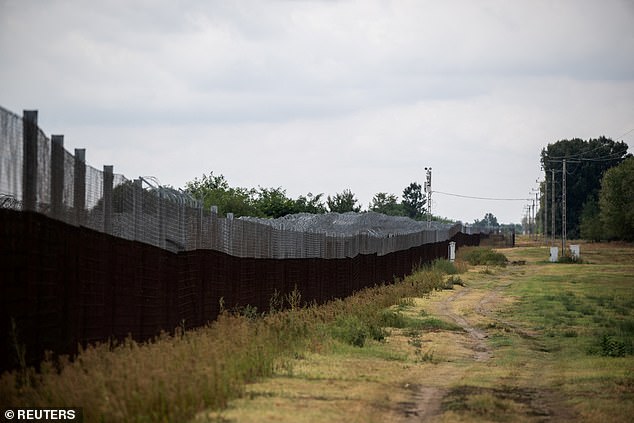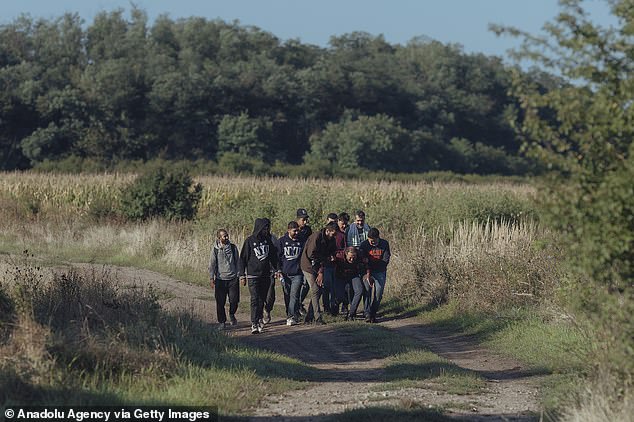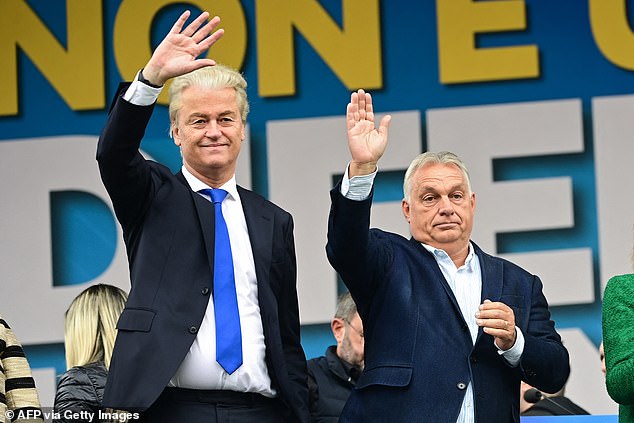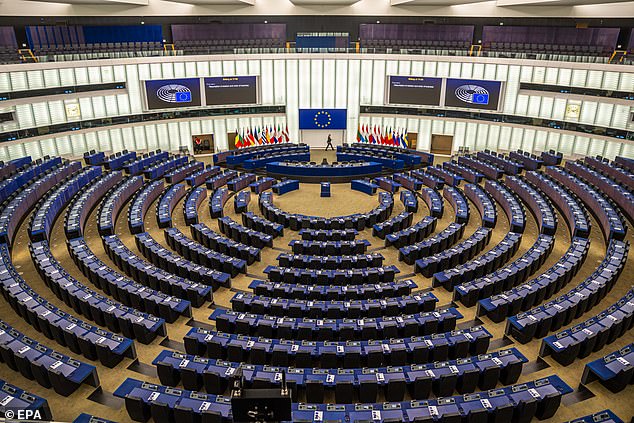ANOTHER EU country demands an opt-out from asylum rules after the Netherlands said it was necessary to secure housing for its own citizens
Hungary has joined the Netherlands in seeking an opt-out of the European Union’s asylum rules, a minister has said, while the country’s nationalist leader Viktor Orbán is expected to cause a stir in the European Parliament on Tuesday .
Last month the Dutch government, which is dominated by Geert Wilders’ far-right party, declared an “asylum crisis” and asked Brussels to opt out of the common asylum policy.
It said the move was justified so it can provide “housing, healthcare and education” to its citizens, but the European Commission responded by saying it did not expect “immediate changes.”
The European treaties are binding agreements, and any exceptions can only be made with the agreement of all 27 EU member states.
The EU rules, adopted in May and due to come into force in 2026, aim to divide reception responsibilities across the 27-nation bloc and speed up deportations of those ineligible to stay .
Viktor Orban heads to the European Parliament today for what promises to be a stormy face-to-face conversation with EU lawmakers

The Hungarian border fence is seen at the Hungarian-Serbian border near Asotthalom, Hungary, September 10, 2024

Migrants cross the Slovak-Hungarian border near Vyskovce Nad Iplom, Slovakia on September 6, 2023

Dutch Freedom Party leader Geert Wilders and Hungarian Prime Minister Viktor Orban met this week during the annual meeting of the Italian far-right League (Lega) in Pontida, northern Italy.
Budapest wrote to EU Home Affairs Commissioner Ylva Johansson on Monday asking for an exemption from the rules, Hungarian European Affairs Minister Janos Boka said on Facebook.
“The Hungarian government is determined to take strong measures to protect its borders and counter illegal migration that threatens national security,” Boka said in the letter on Facebook late Monday.
He added that “restoring stronger national control over migration” was “the only option” to curb “illegal migration.”
Hungary regularly accuses the European Commission of encouraging migration with its policies.
In June, the European Court of Justice fined Hungary for failing to comply with international procedures for asylum seekers. The Central European country has so far refused to pay the fine.
Orban heads to the European Parliament today for what promises to be a stormy meeting with EU lawmakers – halfway through the bloc’s norm-busting presidency in Budapest.
As Russian President Vladimir Putin’s closest ally within the EU, Orbán’s government is at odds with its partners over a range of issues – from cutting aid to Ukraine to passing a raft of laws that the bloc considers as a democratic backsliding.
Orban set the tone on Sunday with a combative social media post in which he pointed to the election gains of the far right from Italy to the Netherlands and Austria – and the growing influence of a Hungarian-led new group in the EU parliament, the Patriots for Europe .

The European Parliament ahead of a plenary session at the European Parliament in Strasbourg, France, 7 October 2024
“We should not withdraw from Brussels, but occupy it,” he wrote. ‘We will take Brussels back from the bureaucrats and give it back to the European people!’
The hot-button migration issue is expected to play a major role, with Hungary’s anti-immigration government threatening to ferry asylum seekers to Brussels in protest against the bloc’s refugee policy.
It comes as the Dutch government, which was formed in July and includes Wilders’ far-right Freedom Party (PVV), has declared an “asylum crisis” to pave the way for tougher measures.
These include a freeze on asylum applications and powers to forcibly deport people who have no right to stay in the Netherlands.
Under the proposal, refugees would also only be able to bring in family members if they have had residency status for two years, housing and a “stable income.”
Currently, asylum seekers receive a permanent residence permit after five years.
The German government announced last month that it would introduce controls at all its land borders to tackle the “ongoing burden” of migration and “Islamist terrorism”.
Interior Minister Nancy Faeser told the EU the country had no choice but to enforce proper border controls to tackle unauthorized entry.
The policy marked a reversal from her position last month, when she refused to extend strict controls first introduced last year at Germany’s borders with Poland, the Czech Republic and Switzerland.
These rules have resulted in more than 30,000 people being sent back to the border since mid-October last year.
